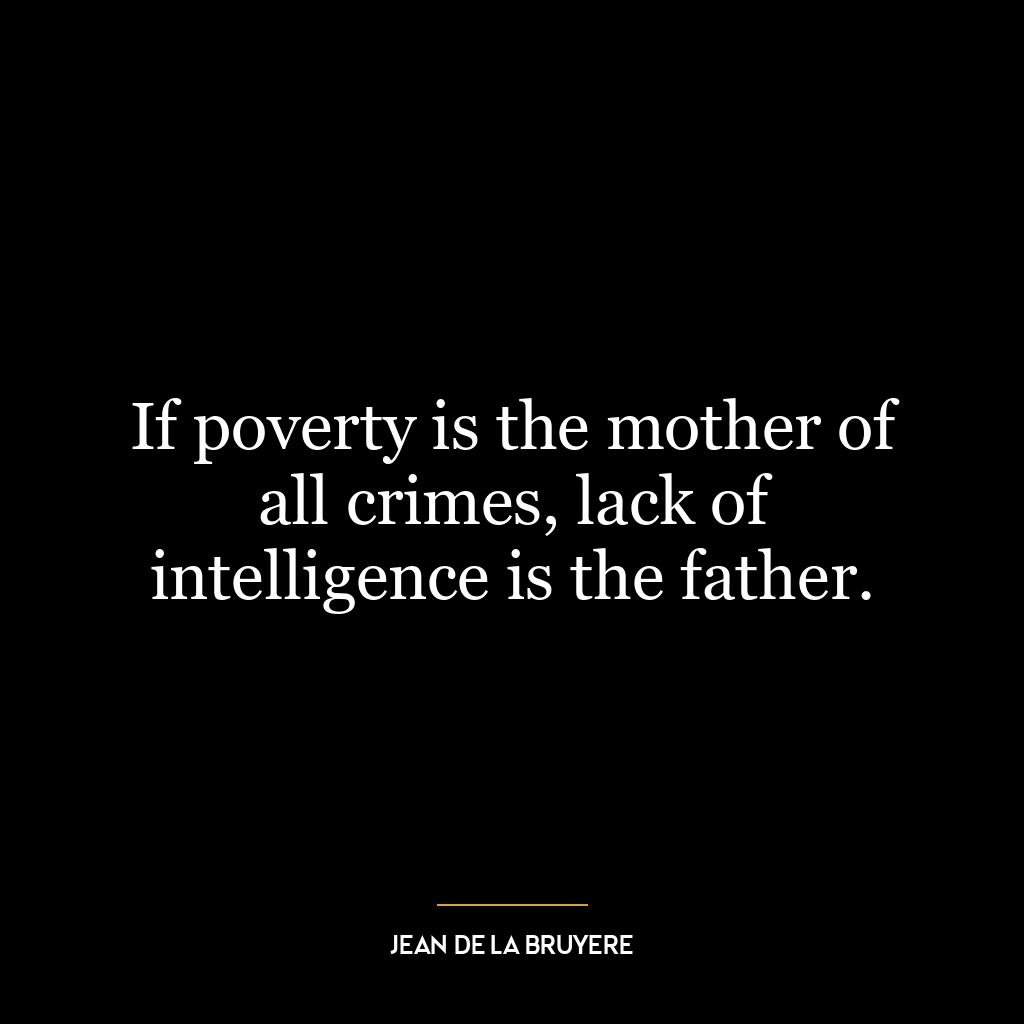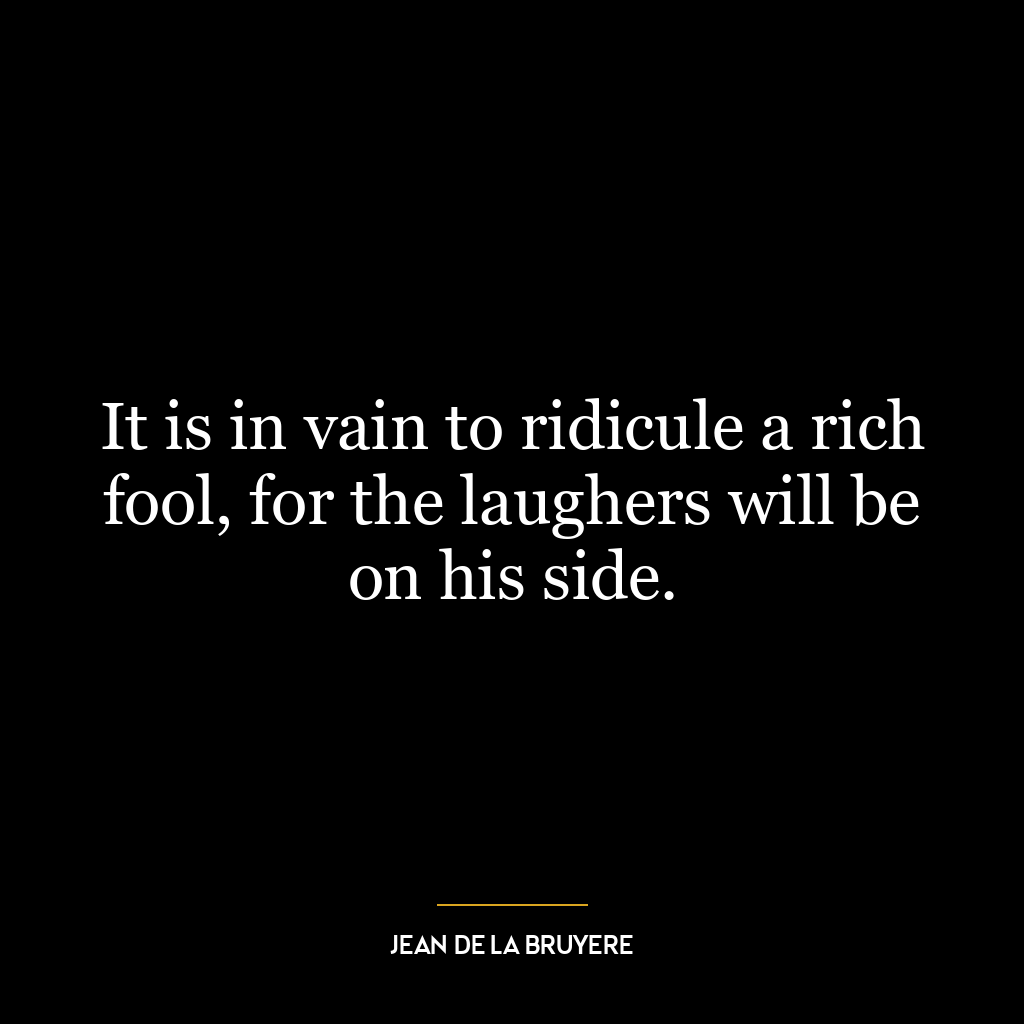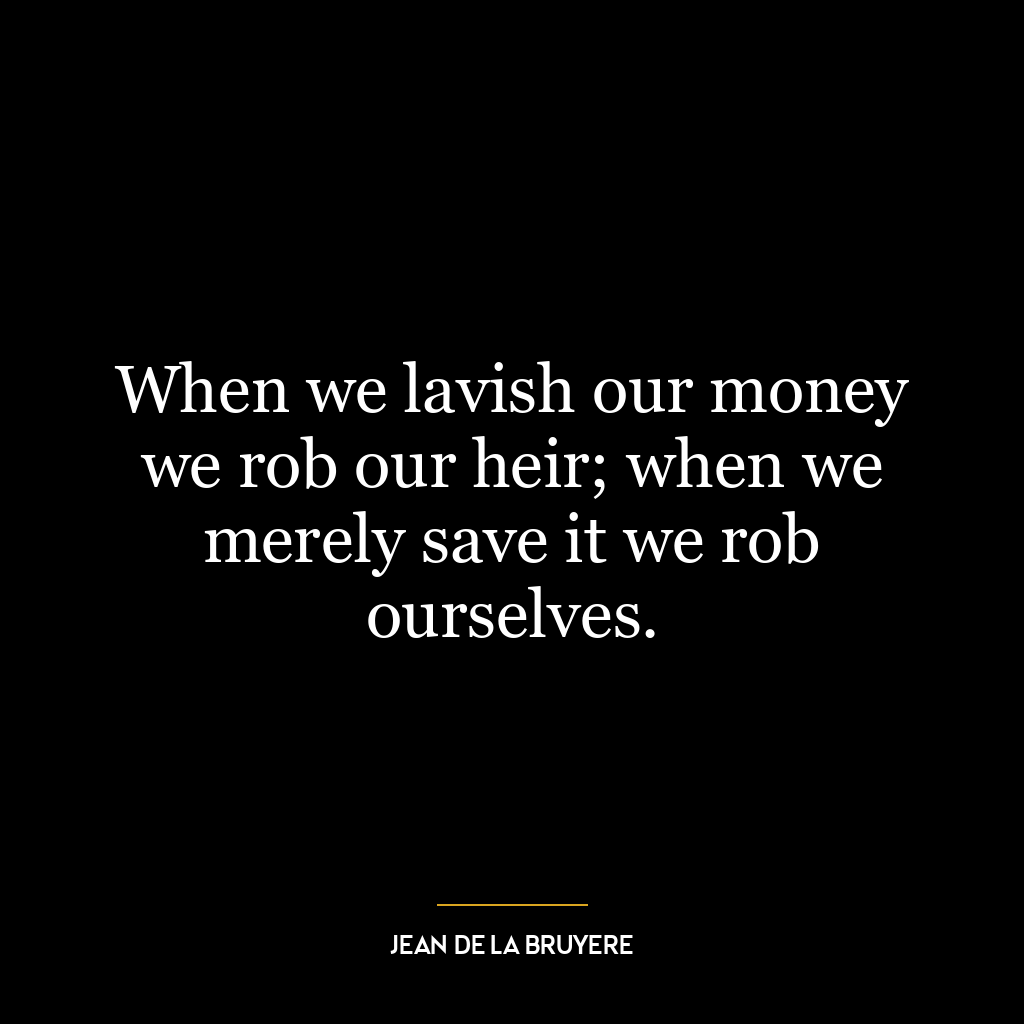If either wealth or poverty are come by honesty, there is no shame.
This quote suggests that the state of being wealthy or poor is not what defines a person’s worth or character, but rather the means by which they’ve acquired their wealth or encountered their poverty. If these states are achieved through honest means, then there is no reason for shame or guilt. The underlying principle here is that integrity and honesty are the true measures of a person’s character, not their financial status.
The quote also implies that wealth obtained through dishonest means should be a cause for shame, not pride. Similarly, if one is poor because they’ve chosen to act with integrity and not take dishonest shortcuts, there should be no shame in that.
In today’s world, this principle is more relevant than ever. In a society where wealth is often equated with success and power, it’s easy to overlook the importance of how that wealth was obtained. The quote encourages us to value honesty and integrity over material gain. This might mean rejecting a lucrative but unethical business deal, or choosing to live modestly in order to stay true to one’s principles.
In terms of personal development, this quote can be a guiding principle. It suggests that we should strive for success, but not at the cost of our honesty or integrity. It encourages us to make choices that we can be proud of, regardless of the financial outcome. It reminds us that wealth or poverty do not define us; our actions and our character do.








